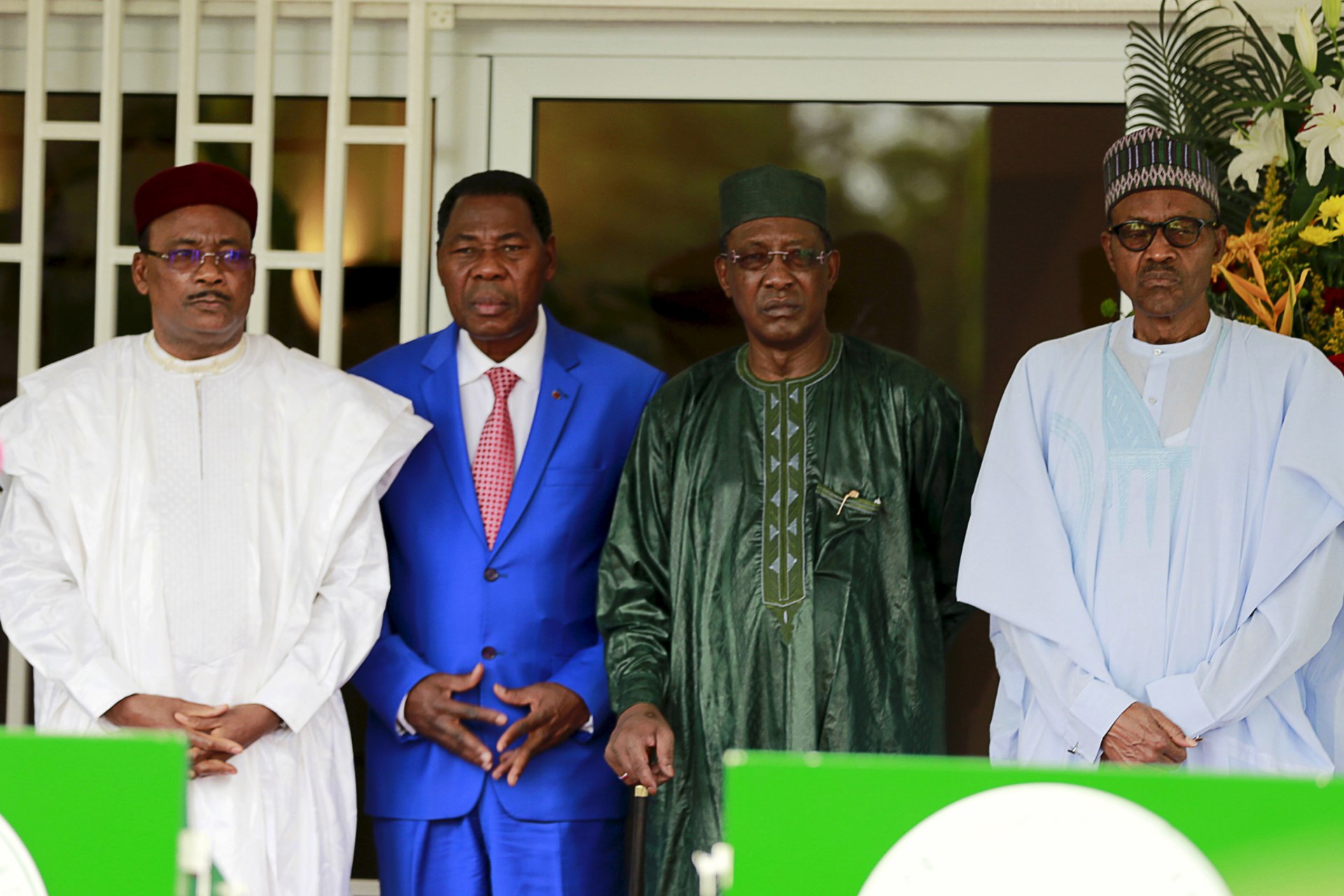Mixed Results in Evaluation of Multinational Effort Against Boko Haram

By experts and staff
- Published
By
- John CampbellRalph Bunche Senior Fellow for Africa Policy Studies
International Crisis Group, a well-regarded NGO, has issued a thoughtful evaluation of the effort by Cameroon, Chad, Nigeria, and Niger to coordinate their military efforts against Boko Haram in the Lake Chad Basin. The coordinating instrument is the Multinational Joint Task Force (MNJTF), authorized by the African Union in 2015 and with a civilian oversight board. Participating states collectively pledged 8,000 troops to the MNJTF. (The Republic of Benin is a member of the MNJTF but contributes no troops.)
Crisis Group notes successes by the MNJTF: instances of troops engaging with Boko Haram across national borders and improved morale among soldiers. However, Crisis Group also notes that Boko Haram factions often quickly regroup after MNJTF operations because such operations are rarely sustained. In fact, Boko Haram appears to be strengthening, especially in northeast Nigeria. According to the Nigeria Security Tracker, the last two years have been deadlier than any other period for Nigerian soldiers since the Boko Haram insurgency began in 2011.
Further, the report finds that participating countries are reluctant to cede command over their own troops to the MNJTF, planning is poorly coordinated, and there is a shortage of funding. Participating countries often have different political goals. For example, Crisis Group suggests that the Nigerian government sees the MNJTF as a fig leaf to cover the Chadian military’s operations within Nigerian territory. Further, civilian oversight is weak and poorly funded. To that end, Crisis Group recommends enhanced intelligence coordination, establishing clearer lines of authority, and improving the human rights posture. Those participating in the MNJTF should approach the AU and the EU for increased funding.
The economic impact of the coronavirus pandemic and the fall in oil prices has weakened the already struggling economies of the MNJTF, and so the prospect of asking the force to do more must be seen in the context of the cash-strapped current climate. But some of the report’s recommendations may not require much in the way of funding, such as trust building among MNJTF participants and better coordination and communication.
Beyond its clear-eyed evaluation of the MNJTF, Crisis Group notes the need of participating governments to win the trust of the local populations in the Lake Chad Basin. This implies a political process that is largely absent, though the report makes the important observation that a well-functioning MNJTF could promote trust. That dimension could prove to be more significant than its military operations against Boko Haram.